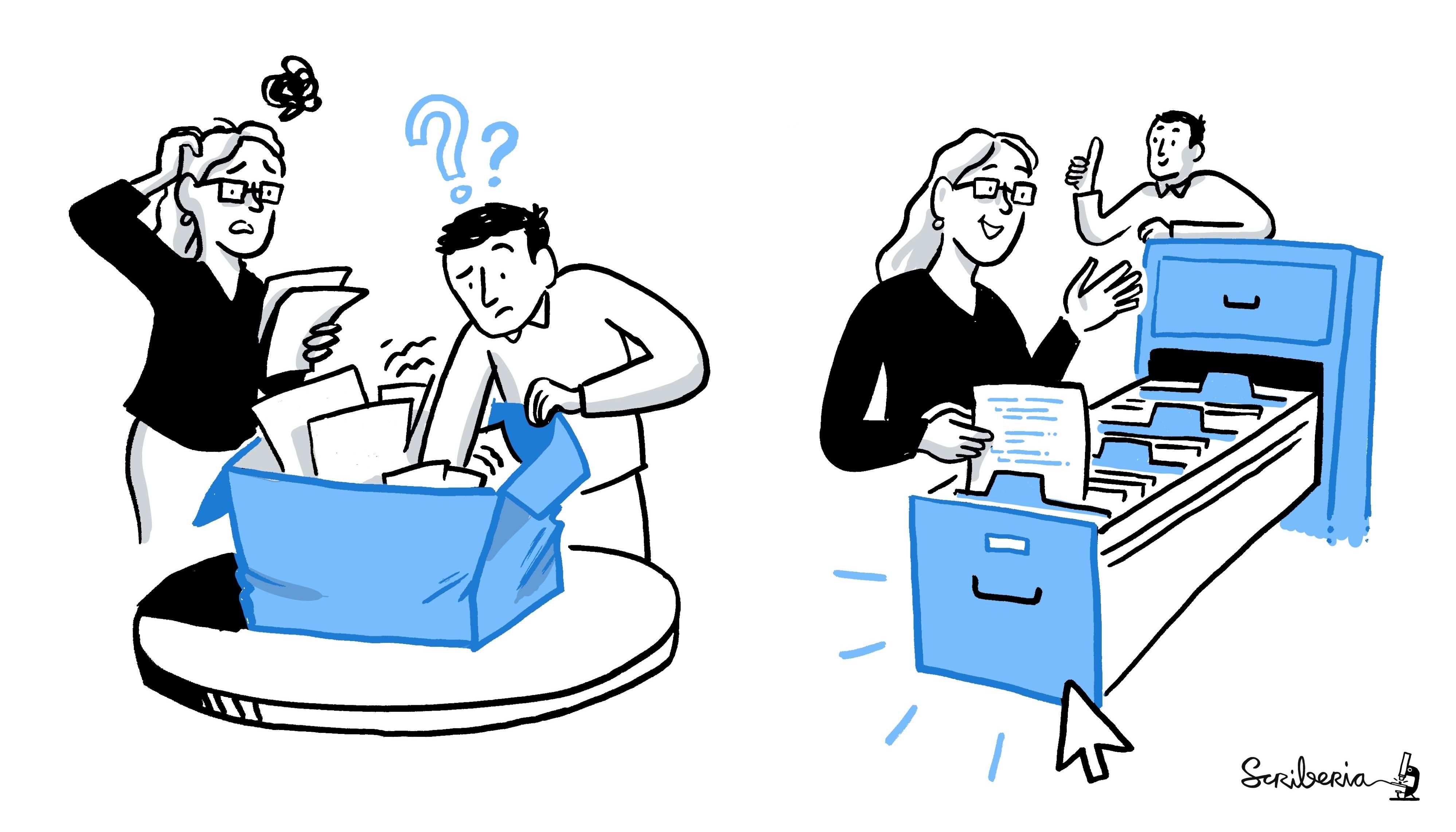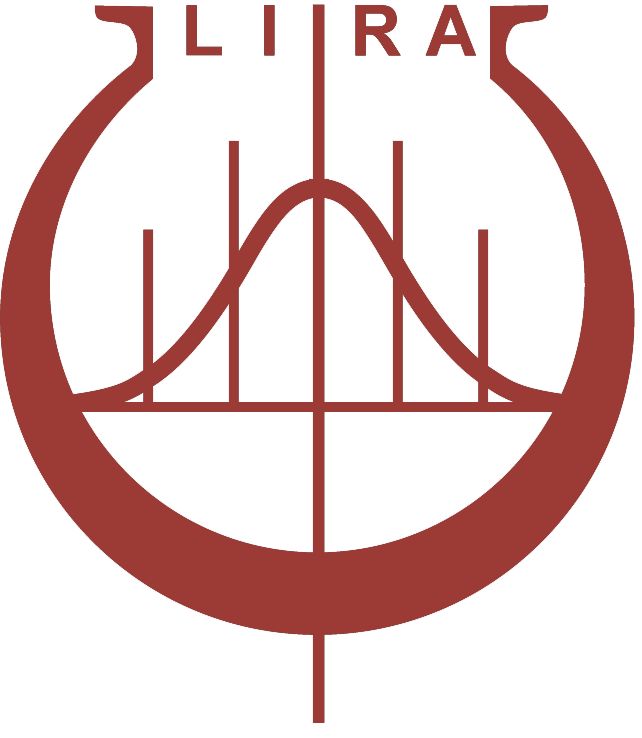[RRI Good Practice] Open Repository of Psychological Instruments in Serbian (REPOPSI)
What is the good practice about?
REPOPSI (https://osf.io/5zb8p/) – established and maintained by the Laboratory for Research of Individual Differences at the University of Belgrade since March 2020 and hosted on the Open Science Framework – is an Open-Access repository of psychological instruments.
REPOPSI improves the findability, reusability, and visibility of psychological scales, tests, and other psychological instruments translated into Serbian, adapted for the Serbian population and developed by local researchers. It currently holds 176 records (152 instruments are available in full, while 90 instruments are available in both Serbian and English). Instruments can be used freely for non-commercial purposes, such as academic research or education.
Researchers and students at the Laboratory for Research of Individual Differences are both the maintainers and users of the REPOPSI, so they are able to experience the benefits of having a centralised, Open-Access repository of psychological instruments first-hand. It has become easier and quicker to find and share instruments and their translations/adaptations into Serbian. For example, instead of having to email the researchers to request a translation, they can now look it up in the REPOPSI. If someone requests an instrument, it can be shared as a link via REPOPSI. The repository also prevents overlapping translation/adaptation efforts, which were common in the past. REPOPSI makes it easier for researchers to share their research tools, which contributes to the transparency and reproducibility of their findings. For example, instead of having to deposit the instruments from a study in a new Open Science Framework project they have created, researchers can refer to the REPOPSI in their scientific publications. Starting from the academic year 2019/2020, undergraduate psychology students at the University of Belgrade Faculty of Philosophy have been using REPOPSI to quickly find instruments and instrument administration/scoring procedures to carry out hands-on group projects on psychological assessment. It has also become easier for graduate and postgraduate students to find existing translations/adaptations and novel instruments to include in their thesis projects. The REPOPSI provides access to a large number of instruments that have already been translated and prepared for cross-cultural research, which facilitates participation in large-scale collaborations. This is especially important when a fast response from researchers is required (e.g., in times of health crises like the COVID-19 pandemic).
Why is this initiative needed?
The majority of standardised psychological instruments (such as scales, questionnaires or tests) used by researchers and clinicians have been originally created in English and need to be translated and adapted to other countries and cultural contexts. Before the REPOPSI, there were no centralised Open-Access repositories for the translations and adaptations of psychological instruments in Serbian. It was not uncommon for several research groups to unknowingly work on the same translations/adaptations. This decreased the efficiency of the research process by causing redundant expenses and overlapping efforts. The finding and sharing of data were also slowed down by the fact that existing translations/adaptations could only be tracked through scientific articles or by contacting researchers directly. Another reason for establishing the REPOPSI was that the opportunities to ensure the visibility and reusability of original instruments developed by local researchers were limited.

Image: Scriberia for The Turing Way community, CC-BY (Changes were made)
What are the main objectives and activities?
OBJECTIVE 1: To establish a secure Open-Access repository of psychological instruments in Serbian.
ACTIVITIES: The team first solicited instrument contributions from the researchers and students at the Laboratory for Research of Individual Differences. They then developed a uniform documentation system, searchable and detailed inventories (both human- and machine-readable) of available instruments, and terms of use (CC BY-NC-SA 4.0 - Attribution-NonCommercial-ShareAlike 4.0 International licence). After that, they deposited the data on the Open Science Framework, a free web application that can sustain REPOPSI services and has a secure and reliable cloud environment.
OBJECTIVE 2: To promote the Repository to its target user community.
ACTIVITIES: The team shares news about the REPOPSI on the Lab’s social media accounts on Facebook, Twitter, and LinkedIn, as well as on the University of Belgrade Faculty of Philosophy webpage. They successfully applied for the REPOPSI to be listed in the Registry of Research Data Repositories - https://www.re3data.org/, as well as on the map of repositories in Serbia curated by the National Open Science Portal of Serbia. They attend conferences and plenary meetings presenting REPOPSI and hold workshops about the REPOPSI and recommend it to students taking psychology courses they teach.
OBJECTIVE 3: To increase the number of psychological instruments available in the Repository.
ACTIVITIES: The team developed a contribution procedure so that researchers and students who are not affiliated with the Lab can contribute to the REPOPSI. They actively invite contributions during their promotional activities (Objective 2) as well as through direct contact.
OBJECTIVE 4: To maintain the Open-Access repository for the long term.
ACTIVITIES: A team of trained researchers and graduate students was established at the Laboratory for Research of Individual Differences who are in charge of maintaining the Repository. A manual for reviewing, cleaning, and depositing the contributions was developed that the team uses. This relies on the FAIR Data (Findability, Accessibility, Interoperability, Reusability) and the TRUST (Transparency, Responsibility, User focus, Sustainability, Technology) principles as tools for self-assessment and continuous improvement of the REPOPSI.
Who is involved?
Eight members of the Laboratory for Research of Individual Differences (University of Belgrade Faculty of Philosophy) are currently responsible for the REPOPSI – Aleksandra Lazić is the admin; Dr. Lili Lazarević, Dr. Danka Purić, and Dr. Iris Žeželj are supervisors; while Marija Petrović, Ana Ivanov, Mia Medojević, and Jovan Ivanović help with depositing the instruments.
The REPOPSI contact email address is: lira@f.bg.ac.rs

Can this good practice be replicated?
The initial REPOPSI contributions were crowdsourced with the help of psychology researchers and students at the Laboratory for Research of Individual Differences at the University of Belgrade Faculty of Philosophy, who are part of the REPOPSI’s target user community. Furthermore, before the REPOPSI was launched, they were encouraged to provide feedback on the repository's contents and design. REPOPSI remains open to feedback from research, open science, and data management communities regarding any issues with the data or the contribution procedure. The team behind the project remains in contact with these communities by attending conferences (Application of Free Software and Open Hardware Conference - PSSOH; Research Data Alliance Plenary Meeting) and organising workshops (supported by the Open Science Community Serbia).
While University of Belgrade Faculty of Philosophy researchers and students have been the most frequent contributors to REPOPSI, researchers and students from other institutions in Serbia (University of Novi Sad; University of Niš; University of Belgrade Faculty of Special Education and Rehabilitation; Faculty of Media and Communications) have also sent their original instruments and translations.
Other research groups could easily replicate REPOPSI’s structure and documentation to create a static Open-Access repository of existing research data (including, but not limited to, research instruments). The REPOPSI is organised as a project on the Open Science Framework (OSF) so all of its data and services are public and transparent. Furthermore, all REPOPSI’s meta-data are in English which makes it accessible to a wider audience.
In case other research groups want to grow and maintain the repository for the long term, some adaptations would have to be made. The maintenance manual (available in Serbian) and the form for contributing new instruments and instrument translations/adaptations (available in Serbian and English) would need to be translated into the language of the target community and/or adapted to the specific research materials that will be stored in the repository.
The team that wants to set up and run a repository similar to the REPOPSI would have to learn to use the OSF platform first; to achieve this, they could, for example, use freely-available help guides in English provided by the OSF.
The REPOPSI is primarily intended for psychology researchers and students from the Bosnian-Croatian-Montenegrin-Serbian-language-speaking countries. However, as half of the instruments are currently available in both Serbian and English, it can also be used by cross-cultural research groups conducting large-scale projects.
Anyone can use the REPOPSI without permission for noncommercial clinical, research, and educational purposes as long as they cite the instrument authors; anyone who wishes to deposit an instrument translation/adaptation in Serbian can do so.
The REPOPSI is hosted on the Open Science Framework (OSF) platform, which is available to everyone free of cost. The REPOPSI was established with no funding and, at the moment, no funding is needed to maintain the repository. The REPOPSI team was already familiar with the OSF platform so no training was needed (for teams that would need training, a two-hour workshop would be sufficient, for example). From May 2019 to February 2020 (10 months), the team worked on setting up the repository and on depositing a total of 129 existing instruments and instrument translations/adaptations contributed by the members of the Laboratory for Research of Individual Differences; during that time, they also developed the contribution form and the maintenance manual. Others who want to replicate the repository would need more or less time than that depending on the size of their data. The REPOPSI was officially launched in March 2020 and is still active. The team continuously works on its promotion, communicating with stakeholders, depositing new contributions, and so on. There are eight members of the REPOPSI team to ease the individual workload (which typically amounts to a couple of hours a month).
Further links:
REPOPSI website: https://osf.io/5zb8p/
REPOPSI Wiki page in English: https://osf.io/5zb8p/wiki/home/
REPOPSI Wiki page in Serbian: https://osf.io/5zb8p/wiki/srpski/
REPOPSI news on Twitter: https://twitter.com/hashtag/REPOPSI?src=hashtag_click
REPOPSI news on Facebook: https://www.facebook.com/hashtag/repopsi
A quantitative report on REPOPSI’s two-year progress: https://osf.io/5zb8p/wiki/repopsi-analytics/
REPOPSI in the re3data registry: http://doi.org/10.17616/R31NJMV5
REPOPSI on the map of repositories in Serbia: https://open.ac.rs/index.php/repozitorijumi
A conference paper and talk introducing the REPOPSI: https://doi.org/10.5281/zenodo.4064293
The agenda and materials from an online workshop: https://oscs.open.ac.rs/index.php/kategorije/10-kategorije/309-radionica-repopsi-otvoreni-repozitorijum-psiholoskih-instrumenata
A lightning talk at a plenary meeting: https://www.rd-alliance.org/rda-vp17-certification-digital-repositories-ig-presentations
LIRA, Laboratory for Research of Individual Differences, at the University of Belgrade Faculty of Philosophy, Serbia: https://lira.f.bg.ac.rs/en/
Relevant RRI keys: Open Access, Open Science, Open Data
Type of practice: Websites serving as platform for services to clients
Target groups: researchers (starting from PhD-candidates, on the individual level), students (up to Master level)
- Serbia
- Cross-thematic/Interdisciplinary
- General
- Social Sciences
Entry created by Elke Dall on June 1, 2022
Modified on June 3, 2022


